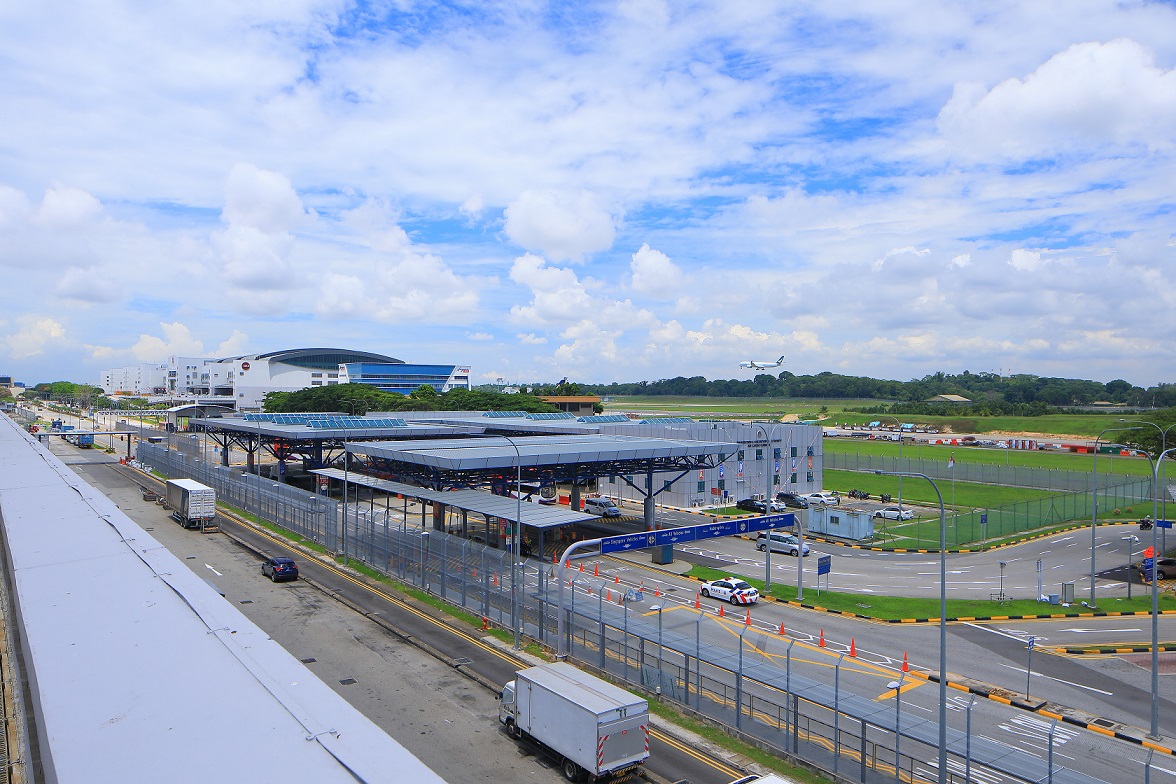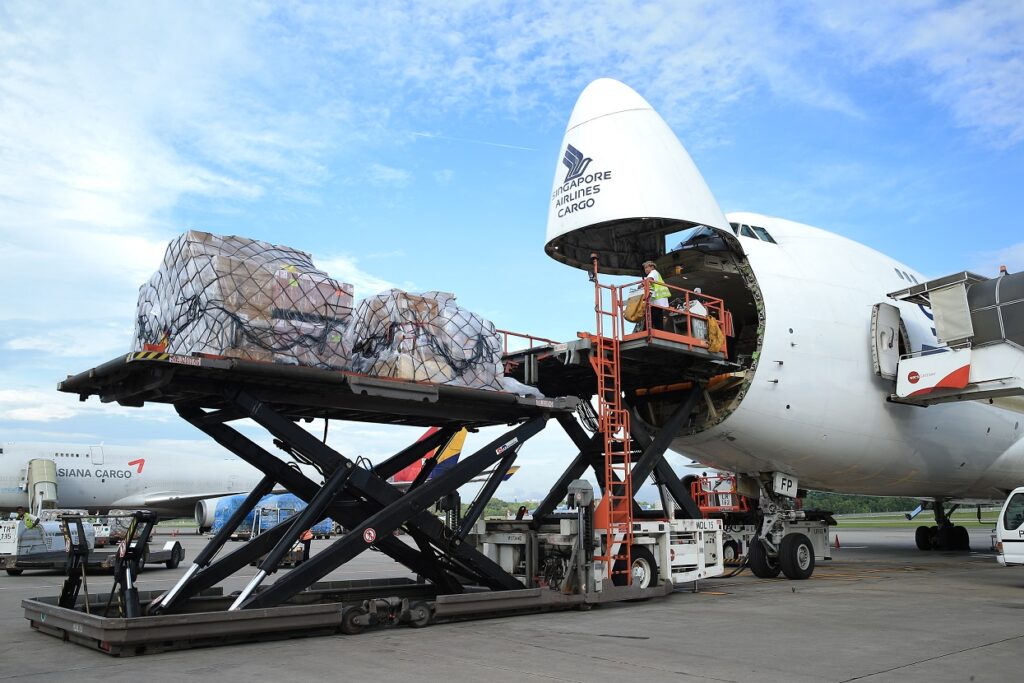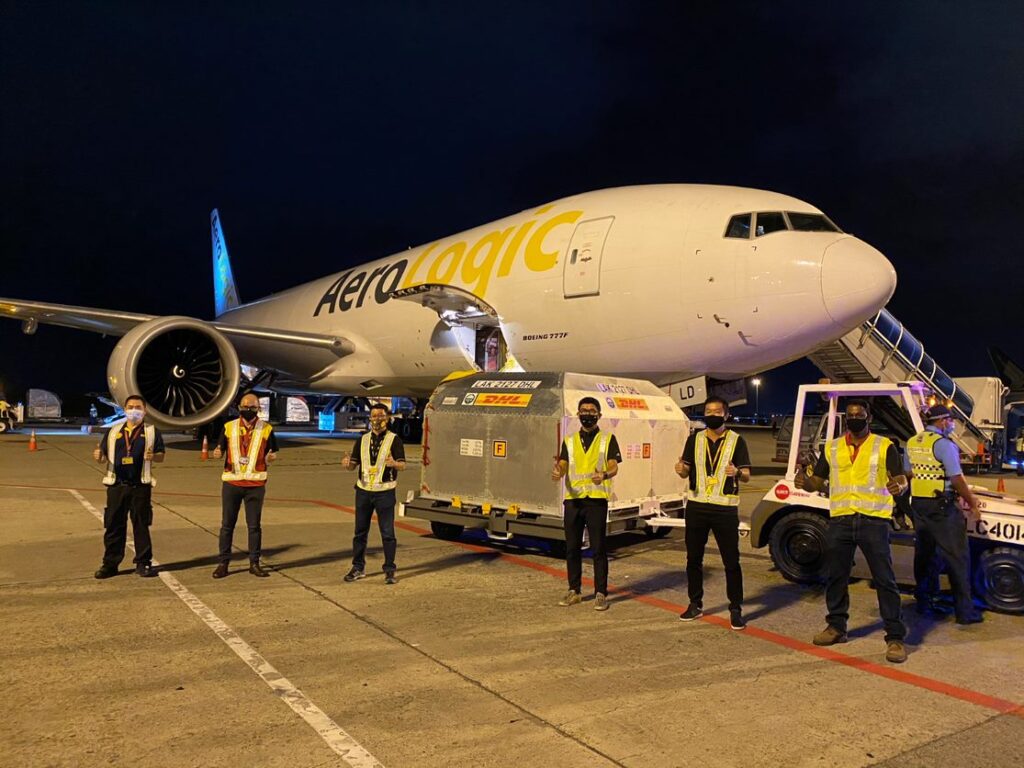Changi takes multimodal approach to growth
09 / 12 / 2022

Changi Airport airfreight centre. Photo: Changi Airport
Changi Airport Group (CAG) in Singapore is adopting an intermodal approach to business in an operating environment where capacity and demand have become a tense balancing act.
Managing director for air hub development Lim Ching Kiat said the airport works with seaport operator PSA International at the Port of Singapore to optimise cargo flow in Singapore based on supply and demand.
“For us, the advantages are Singapore is a busy air cargo hub, but also has one the busiest ports in the world.
“We are looking at this area of intermodal cargo – air-sea transhipment or sea-air transhipment.
“Depending on the economic cycle, if the supply is tight, shippers tend to go for air-air more, but when the market softens price conscious shippers may choose a slower but cheaper sea-air shipment.
“We are keen to grow our intermodal business to give customers different options for moving their goods.”
CAG’s drive to improve capacity management efficiency bodes well for several freighter operators that have invested in the airport since the start of the pandemic.
These include India-based Spice Express, Australian Tasman Cargo Airlines, and US-located Atlas Air.
2022 has also seen a new DHL Express and Singapore Airlines (SIA) partnership that will increase cargo volumes at the airport.
The partnership was established in March to deploy five B777Fs with SIA on a crew and maintenance agreement (CM) in order to secure capacity out of Singapore.
Then in August, SIA began operating a B777 freighter between Singapore and the US via South Korea three times a week.

Singapore Airlines Cargo shipment at Changi Airport. Photo: Changi Airport
“All of these are good developments for us,” says Lim.
The airport is also turning its attention to the restoration of belly capacity.
Pre-Covid, about two thirds of Changi’s cargo capacity was belly capacity, says Lim.
But the recovery of belly capacity has been slow.
“Passenger airlines, traffic and fleet recovery is about 70%,” says Lim.
However, thanks to the recent freighter investments, overall cargo volumes are healthy. “We managed to recover 100% of the 2019 cargo volumes last year in September,” says Lim.
Although he adds: “This year we are seeing the same trends that we see in other parts of Asia and Europe. The cargo volumes have been fluctuating.”
Supply chain diversification efforts will see southeast Asia become more important for manufacturing and Lim believes Singapore can play a key part in this development.
But like elsewhere in the world, ground handling staff shortages is one of the biggest issues for Changi Airport and CAG is working closely with the airlines and ground handling companies to address recruitment and retention, as well as juggling flight slots with airlines in line with available space and resources.
Resource management is especially important with the increase in traffic for the year end passenger and cargo peak.
“In January and February next year, when our partners’ manpower moves closer to pre-Covid levels. I think that we can move back into normalcy,” Lim says.
Digitalisation goals
Singapore has always had a manpower challenge due to having a small population, says Lim, but the airport aims to use digitalisation and automation as a way of relieving pressure, and improving productivity and efficiency.
On the digitalisation front, the airport is leading an air cargo community system.
“We bring together all the partners that are involved in air cargo handling, ranging from the cargo handlers, the freight forwarders and the last mile truck drivers to facilitate an exchange of information and data so that things move smoothly.”
CAG is working with partner airlines and ground handlers on various ongoing studies to see how it can improve the productivity usage of its cargo warehouses and also solve some of the manpower issues.
Improving productivity is key as the airport, which holds IATA CEIV pharma certification, builds its pharma business with investment in temperature control facilities.
This investment enabled CAG to capitalise on demand for transport of vaccines during the pandemic.
CAG has started a pharma in Changi initiative. “We have organised a platform for us to have dialogues with the pharmaceutical shippers to get feedback on how we can improve operations. Singapore is a key pharma hub so the airport can play a key role in facilitating this dialogue.”
Changi Airport is also one of the founding members for pharma.aero Association, alongside Brussels Airport and Miami Airport.
The association addresses how airports can exchange best practices on pharmaceutical handling and collaborate on projects.

First Covid-19 vaccine shipment at Changi Airport. Photo: Changi Airport
Other major market areas for Changi Airport include perishables, e-commerce and advanced materials, including semiconductors.
In addition to pharma, CAG is building partnerships through its subsidiary, Changi Airports International (CAI).
CAI is a consultant, manager and investor in the global aviation market and is “constantly looking out for different partnership options,” says Lim.
CAI’s current investments and projects include Tom Jobim International Airport in Brazil, Chongqing Jiangbei International Airport in China, Durgapur Aerotropolis in India, Fukuoka Airport in Japan, Clark International Airport in the Philippines, Vladivostok International Airport in Russia and the airports of Sochi, Krasnodar and Anapa in Russia’s Krasnodar region.
While economic pressures and staffing are the biggest challenges for Changi, the airport has big ambitions for the next five years and aims to ensure its cargo network is robust. “The target is to get into the top 10 international cargo volume by global standards,” says Lim.













